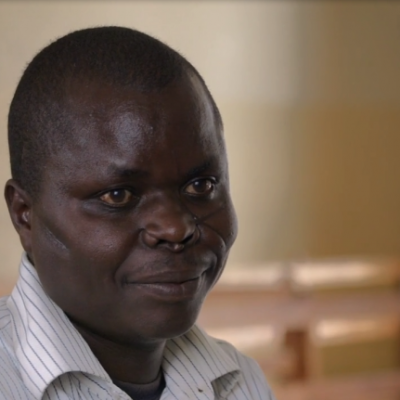Written by: Bernard Wong (Assistant Professor (Theological Studies) and Associate Dean of China Graduate School of Theology, Board Member of CEDAR Fund)
If a Christian has been wronged, other believers often encourage her to offer forgiveness immediately, for Jesus teaches us to “forgive a brother seventy-seven times.” We may think that a good Christian should endure unfair treatment, and ought to be forgiving under all circumstances. Did Jesus really mean that?
“Seventy-seven times” is Jesus’ response to Peter’s question – “How many times shall I forgive my brother or sister who sins against me?”(Matt 18:21-22) However, in the previous passage, Jesus had just discussed the situation of “if your brother sins against you”. Therefore, “seventy-seven times” must be understood within this context:
“If your brother or sister sins, go and point out their fault, just between the two of you. If they listen to you, you have won them over. But if they will not listen, take one or two others along, so that ‘every matter may be established by the testimony of two or three witnesses.’ If they still refuse to listen, tell it to the church; and if they refuse to listen even to the church, treat them as you would a pagan or a tax collector.” (18:15-17)
From this point of view, forgiveness does not mean “forget it”, but can only be offered after confirming that the perpetrator did commit an offense. Forgiveness means that after judgment is passed, the wronged person chooses to forgive and let the perpetrator go. The purpose of “going to your brother or sister who sins” is to seek the truth with the purpose of “bringing back a brother.” Reconciliation is the goal. Therefore, accusing the other or defending oneself is not the motivation behind discussions between the wronged person and the perpetrator. Instead, it is motivated by love, hoping for repentance, forgiveness, and reconciliation. Understood this way, “forgiving your brothers seventy-seven times” must be preceded by making careful judgment seventy-seven times.
Jesus told the parable of “the unmerciful servant” after teaching about “forgiving seventy-seven times” (18:23-35). The message of the parable is that those who have been forgiven by God have received God’s abundant grace and God in turn expects them to offer the same grace to those who have sinned against them. When the servant in the parable refused to forgive others, the master withdrew his forgiveness and “handed him over to the jailers to be tortured, until he should pay back all he owed.” (18:34) Note that the servant was punished not because of “unwilling to forgive”, but because of the debt he owed. As such, “unwilling to forgive” is not a fault in itself, and no one can force the victim to forgive. Forgiveness is the grace given voluntarily by the person who was wronged. Only God, who has offered everyone forgiveness, can demand us to forgive others.
To conclude, if someone commits an offense in the church, Christians must deal with it seriously by seeking the truth and judging the matters carefully. Reconciliation only happens when the offender repents and the victim forgives. Forgiveness needs grace; it is never easy for victims to offer forgiveness. We should never force a victim to offer forgiveness. Otherwise the victim may be harmed over again.
Content of this issue
Written by: Edward Lai (Senior Communications Officer) “I give you this calf as a mark of reconciliation” says Innocent, a survivor in the genocide in Rwanda. He scrubbed the calf’s body with grass, held the rope tied to the neck, and handed it to the “new master” – the one who had tried to kill him with a machete along with other mobs. There are still many clearly visible scars on his face. Among them, there are two cross-shaped scars on the left cheek, one extending from the forehead down to the nostril, and the other from the cheekbones to the right side of the nose. When he lowered his head, there were also many scars come from…
Written by: Bernard Wong (Assistant Professor (Theological Studies) and Associate Dean of China Graduate School of Theology, Board Member of CEDAR Fund) If a Christian has been wronged, other believers often encourage her to offer forgiveness immediately, for Jesus teaches us to “forgive a brother seventy-seven times.” We may think that a good Christian should endure unfair treatment, and ought to be forgiving under all circumstances. Did Jesus really mean that? “Seventy-seven times” is Jesus’ response to Peter’s question – “How many times shall I forgive my brother or sister who sins against me?”(Matt 18:21-22) However, in the previous passage, Jesus had just discussed the situation of “if your brother sins against you”. Therefore, “seventy-seven times” must be…
Written by Clara Chiu (Head of Partnership Development) In order to transform the society, we first have to give children a chance to grow up healthily so that they can become leaders of good character who obey God’s will. We provide basic life and human rights protection, learning opportunities and spiritual courses for poor children in many countries in Asia, Africa and the Middle East. In the previous year, CEDAR supported 14 partners and carried out a total of 17 children and youth development projects. Among them, we have a 15-year-long project in Zimbabwe to empower children and families affected by HIV/AIDS in the suburbs of the local city of Mutare. In the first phase of the project…





